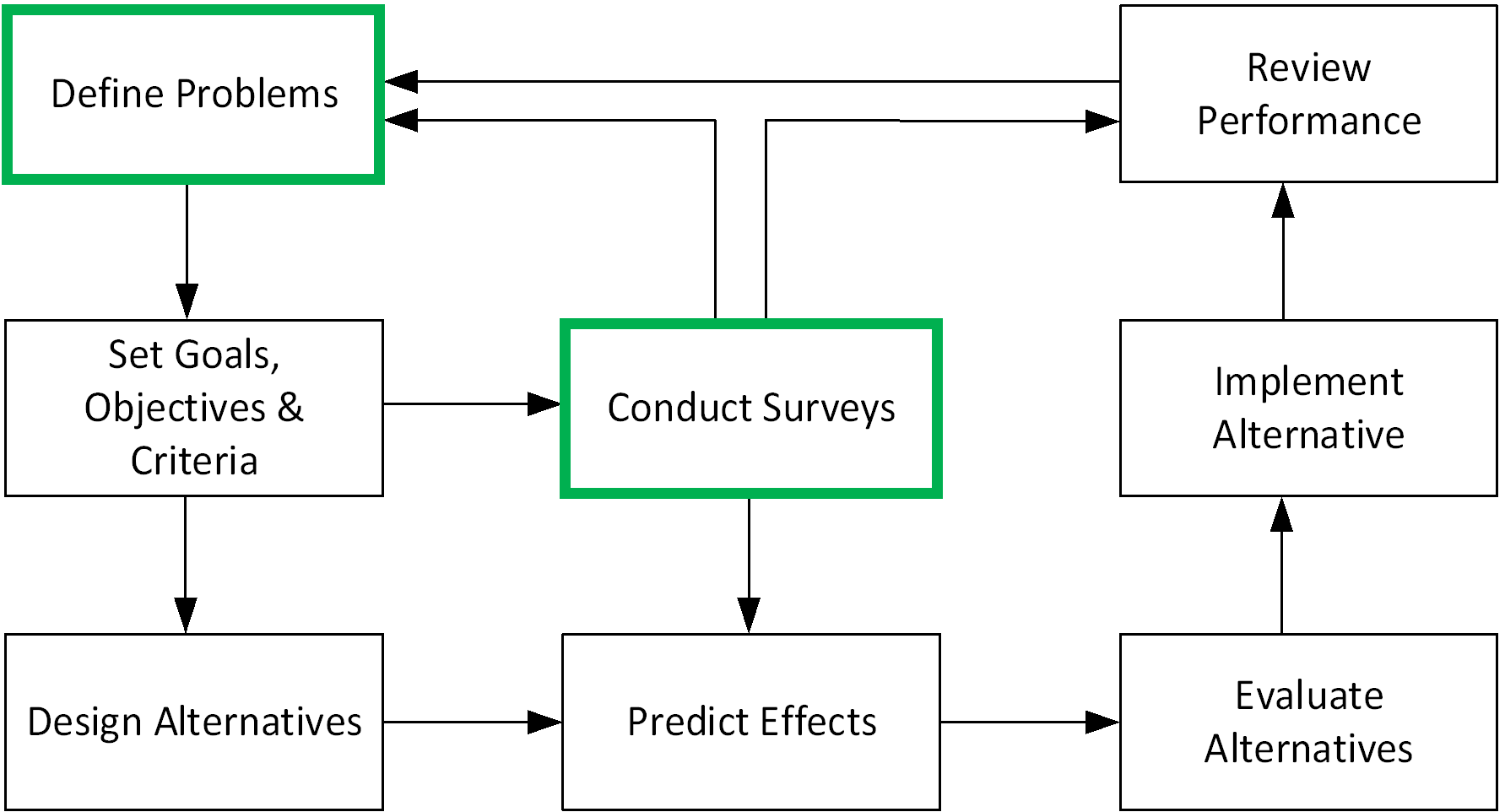2.2.2 Understanding the Issues
Course subject(s)
Module 2. System approach to understand city logistics
Understanding the issues can be done by Defining Problems and Conducting Surveys. These are the first two of the eight actions in the systems approach.

Defining Problems
Defining problems for stakeholders is important in working towards improving a system. In general terms, a problem can be defined as the difference between a desired & the actual state. It is simply the difference between what one has and one wants (de Bono). Problems are largely influenced by values and system boundaries. Defining problems is important as, “a problem well specified is half solved”, since a carefully defined problem suggests solutions. Also, it is difficult to extract a right answer from a wrong problem.
Values are irreducible qualities upon which individual and group preferences are based. They are things which are prized, as of great worth and desirability. Values are broad and abstract concepts and are not generally stated (eg. health, safety, order, freedom, friendship, equity, accessibility and privacy).
System boundaries involve specification of the limits of the system to be considered in seeking a solution. They are usually set by intuitive assessment. There are three main categories or dimensions that aid identifying the system boundaries: who (type of stakeholder), where (geographic boundaries) and what (range factors), see Figure 2. In urban freight, stakeholders typically include shippers, carriers, receivers, administrators and residents. The spatial unit of interest in urban freight systems can be a site/terminal (eg. a port), a region (freight corridor) or an entire metropolitan area. The range of factors can include, financial, economic, social and environmental.

Figure 2 System Boundaries for Urban Distribution
Conducting Surveys
Conducting surveys involves collecting data. This can be observational, such as recording events using sensors or by conducting interviews or designing questionnaires. Freight surveys are typically carried out for policy decision making, understanding/research or modelling. Data is necessary for reviewing and monitoring the system. Monitoring is the regular scrutinisation of how a plan is working. It compares the performance of the system with the predetermined objectives and involves reviewing the performance of the plan regarding its efficiency and effectiveness.

Sustainable Urban Freight Transport: a Global Perspecitive by TU Delft OpenCourseWare is licensed under a Creative Commons Attribution-NonCommercial-ShareAlike 4.0 International License.
Based on a work at https://ocw.tudelft.nl/courses/sustainable-urban-freight-transport-global-perspective/.



